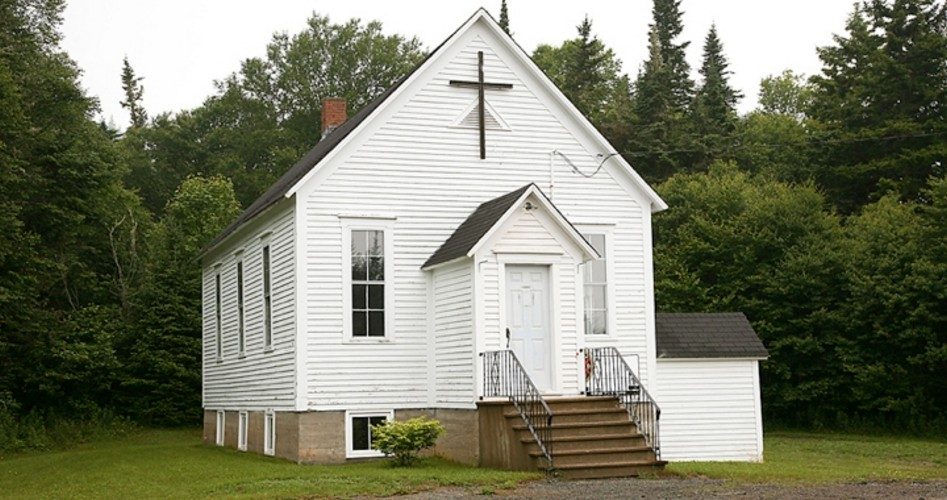
A federal appeals court has upheld a Georgia statute that prohibits guns in churches, rejecting the claims of a pastor and a gun rights group that the law violates both the First Amendment’s guarantee of citizens’ right of religious freedom, as well as the Second Amendment guarantee of the right to keep and bear arms. As for the Second Amendment, the three-judge panel of the 11th U.S. Circuit Court of Appeals ruled that it “does not give an individual a right to carry a firearm on a place of worship’s premises against the owner’s wishes because such right did not pre-exist the Amendment’s adoption. Enforcing the Carry Law against a license holder who carries a firearm on private property against the owner’s instructions would therefore be constitutional.”
In 2010, the Georgia legislature modified a state conceal-carry law that had prohibited gun owners from bringing their handguns to a “public gathering.” As reported by Courthouse News Service (CNS), the amendment broadened the rights of gun owners to carry handguns in public locales, but specified eight locations where they would continue to be prohibited, “including courthouses, jails or prisons, most bars, mental health facilities, and churches or other places of worship.”
According to CNS, a Second Amendment group called Georgia Carry “has been fighting gun regulations in various cities and counties since 2007. The nonprofit’s former president Edward Stone complained that the law would block him from bringing a firearm to services at the Baptist Tabernacle of Thomaston. He said a gun could be helpful if he needs to defend himself and his family.”
The Rev. Jonathan Wilkins, pastor of the church and also a member of Georgia Carry, filed suit against the state law, arguing that it violated both the First Amendment’s guarantee of the right to the free exercise of religion and the Second Amendment’s guarantee of the right to keep and bear arms. But in January 2011, U.S. District Judge C. Ashley Royal ruled against the suit, finding that the gun ban in places of worship does not prevent Georgia residents from attending church and exercising their religious convictions, nor does it conflict with the Second Amendment. “The law only requires that persons either not carry a weapon to a place of worship, leave their weapons secured in their vehicles, or notify security or management personnel of the presence of the weapon,” Royal wrote in his ruling.
The three-judge panel of the appeals court affirmed Royal’s ruling, with Judge Gerard Tjoflat writing that he and his colleagues searched the complaint of Wilkins and the gun group “to no avail in an attempt to find factual allegations that could possibly be construed as alleging that the Carry Law imposes a constitutionally impermissible burden on one of plaintiffs’ sincerely held religious beliefs. That plaintiffs ‘would like’ to carry a firearm in order to be able to act in ‘self-defense’ is a personal preference, motivated by a secular purpose.”
Tjoflat wrote that the plaintiffs’ Second Amendment claims would serve to “destroy one cornerstone of liberty — the right to enjoy one’s private property — in order to expand another, the right to bear arms. This we will not do.”
He wrote that if the “concept of civil liberties depends on a three-legged stool of rights — personal security, personal liberty, and private property — it would be unwise indeed to cut off one leg entirely only to slightly augment another. Rather, our task is to read the Second Amendment’s preexisting right alongside the equally important rights protected by the Constitution in order to strengthen all three legs and thereby better secure the foundation of our liberty.”
Responding to the ruling, Jerry Henry of Georgia Carry recalled to OneNewsNow that his organization filed suit over the law “because the state would not allow the church to make the decision on their private property whether or not guns could be carried on that property. The 11th Circuit said basically the same thing and then ruled against us because they apparently were saying that we were trying to force them to allow guns in church.”
Henry said the law actually exempts some individuals from the ban in churches and other public places. “Police, the military, of course sheriffs, judges, and district attorneys and the list goes on and on and on,” he said of those who could carry guns and use them to protect themselves and others. “However, people who submit to the licensing process are not allowed in that code section.” Said Henry of the ruling: “We think they’ve got it wrong again. The church’s First Amendment right prevails over the state right to tell them what they can and cannot do.”
On its website Georgia Carry declares the Second Amendment “doesn’t just apply in certain locations or to special people favored by the government. The right of the people to keep and bear arms applies everywhere and to all of us without qualification. ‘Shall not be infringed’ means SHALL NOT BE INFRINGED.”
John Monroe, an attorney for Georgia Carry, said that he and his clients were considering appealing the ruling to the U.S. Supreme Court. “We’re looking at it,” Monroe said after the decision. “We respect the court’s decision, but we were disappointed.”
According to the Christian Post, earlier this year Republican state lawmakers introduced another amendment to the state’s gun law that would open up churches and houses of worship to those legally carrying handguns.
Some Second Amendment champions noted that the 11th Circuit Court’s decision came on the same day that James Holmes opened fire on theater-goers in Aurora, Colorado, killing twelve and wounding dozens more. Had at least one individual in the theater been armed and willing to use lethal force, they argued, much of the carnage may have been turned back.



